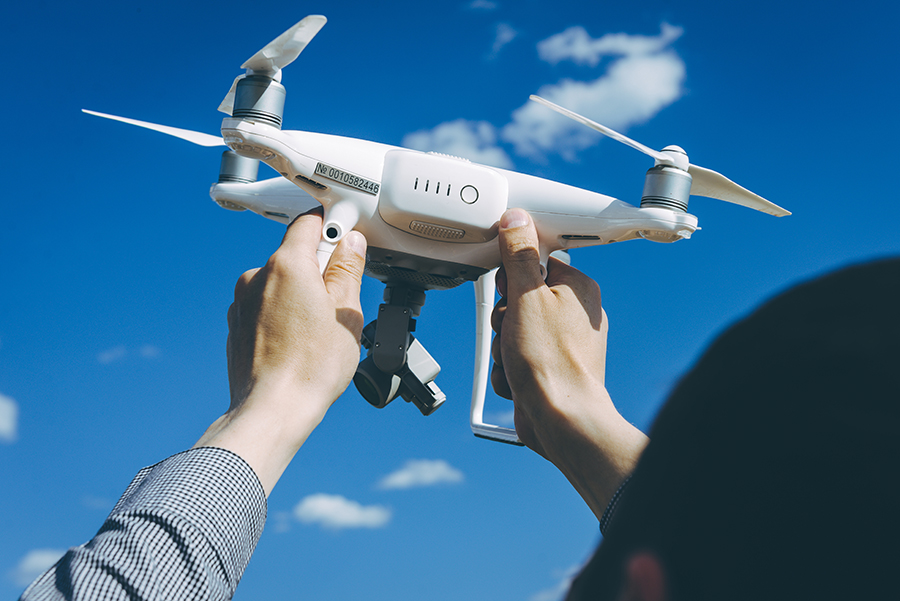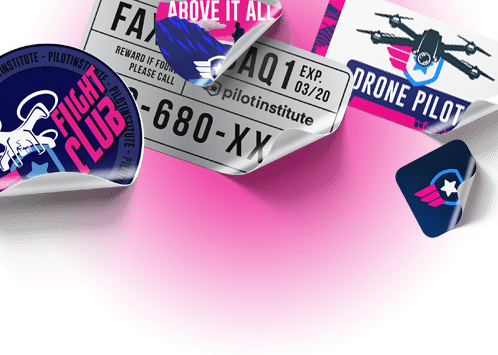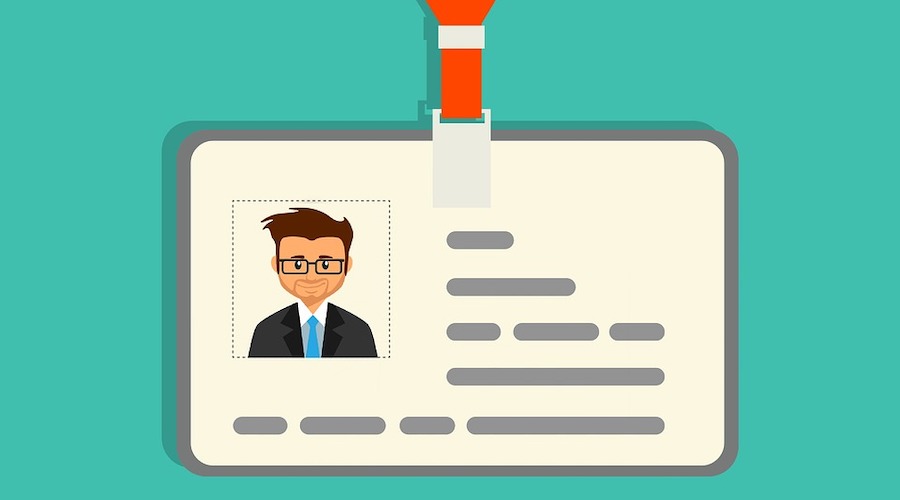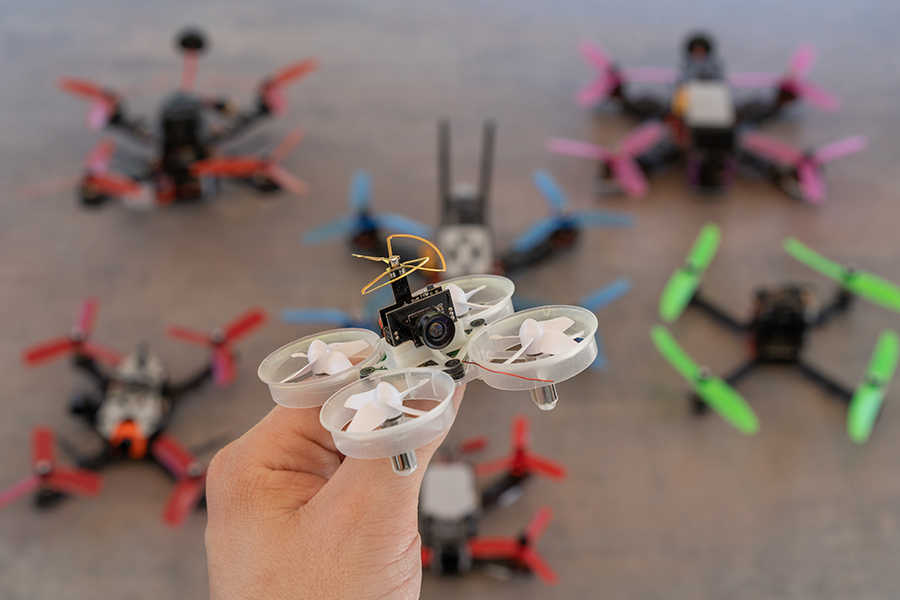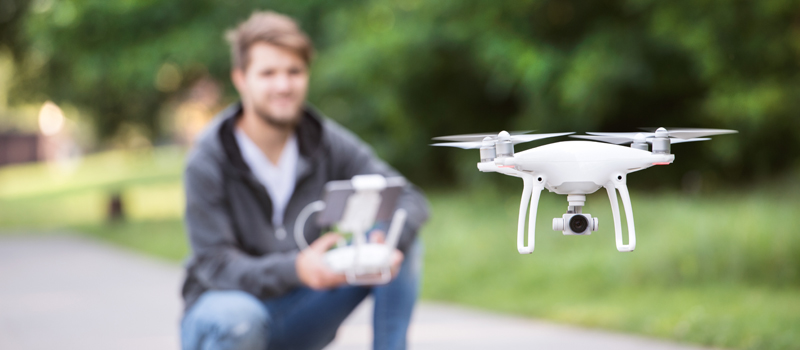-
Which drones have to be registered?
-
Commercial vs. recreational drone registration
-
What are the requirements for drone registration?
-
What is the process for drone registration?
-
Does drone registration expire?
-
How should you mark your drone?
-
What should you do with your registration certificate?
-
Are there commercially available drones that do not need to be registered?
-
Final thoughts
Yes, all drones in the United States have to be registered with the FAA if they weigh 250 grams or more. However, registration is mandatory for all drones used for commercial purposes under Part 107 rules regardless of weight.
Drone registration is one of the first and most basic steps of ensuring safety and accountability for drone flight. It’s a fairly simple and inexpensive process. In this article, we will be going through all the details that are relevant to drone registration.
Which drones have to be registered?
All drones that weigh more than 250 grams or 0.55 lbs. need to be registered with the FAA. This applies to all drones, regardless of how they are going to be used.
There is a distinct difference between the registration requirement for recreational and commercial drone operations. Drones meant for recreational use that weighs less than 250 grams are exempt from registration requirements.
Drones meant for commercial use and operating under Part 107 rules have to be registered with the FAA, regardless of their weight.
The weight limit considered in determining whether a drone requires registration includes all accessories and payloads that are attached to the drone during takeoff. This means that a sub-250-gram drone that has not been registered with the FAA may not fly if it has any propeller guards or other accessories that will push its weight above the threshold.
Commercial vs. recreational drone registration
As already mentioned, the exemption for sub-250-gram drones does not apply to drones meant for commercial use. Recreational drone pilots have the privilege to skip over the registration step if they intend to use their drones purely for fun and not for profit.
There is also a minor difference in how registration rules are implemented between commercial and recreational drones. Operators of recreational drones only need to register with the FAA once, even if they own and operate multiple drones.
In contrast, commercial drone operators will need to register each drone that they own separately. For each drone, the FAA will assign a unique registration number. This makes marking and documentation a little more complicated. Commercial drone operators may also need to pay the registration fee multiple times if they own multiple drones.
Registration can be swapped between commercial and recreational categories. However, this will require creating a new registration fee and paying the registration fee anew.
What are the requirements for drone registration?
You must comply with a few basic requirements to be eligible to register a drone:
- Be a US citizen or permanent legal resident
- Be at least 13 years of age
- Be able to provide a physical mailing address and a valid email address
Professional drone pilots will also need to provide the make and model of the specific drone they are registering. Drone registration requires payment of a USD 5 registration fee. This will have to be paid multiple times in the case of a professional drone pilot registering multiple drones.
What is the process for drone registration?
Drone registration is very easy. Every step can be done online through the FAADroneZone website. If you don’t already have an account here, the first step is to create one.
Once you have an account, just log in and follow the on-screen instructions for drone registration. Make sure to pick the appropriate choice between recreational and commercial drone flights. You will then be asked to provide the relevant details before paying the registration fee. You will then be granted a registration certificate.
Take note that the online registration portal can only be used for drones that weigh less than 55 lbs. Very heavy or large drones will have to go through the Traditional Aircraft Registration process under 14 CFR Part 47. This is a much more tedious process that requires more documentation.
Does drone registration expire?
Yes, drone registration expires after three years. This will have to be renewed to maintain the drone’s registration status. Renewal can also be done via your account at the FAADroneZone website.
The recommended practice is to renew drone registration shortly before the actual expiration date to ensure compliance. The renewal date will still reflect the three-year period since the drone’s original registration date.
How should you mark your drone?
The FAA requires that all registered drones be marked clearly and visibly with the corresponding registration number. This has to be clear enough to be easily seen upon visual inspection. The mark also has to be permanent or at least not easily removed.
There are a few possible ways to mark a drone that complies with the FAA’s requirements, but the simplest is to just place a sticker on a conspicuous part of the drone. If you’re interested, Pilot Institute can produce and mail a registration sticker for your drone – free of charge. Our custom-designed stickers are just the right size to fit on a drone’s propeller arms. Aside from the drone registration number, our stickers also indicate the contact details of the owner. This might come in handy should a drone crash or get lost.
What should you do with your registration certificate?
The FAA registration certificate that you receive upon registration must be carried with you every time you fly your drone. You have the option of printing it or saving a digital copy on your devices. Drone operators may be required to show proof of registration to any Federal, State, or law enforcement officer if asked.
Should someone else borrow and fly a drone that belongs to you, they should also be carrying a copy of your drone’s registration certificate.
Are there commercially available drones that do not need to be registered?
Yes, there are. With the FAA’s drone registration becoming an all-important requirement, there is now a flourishing market for drones that weigh just a hair below the 250-gram threshold. The DJI Mini line is probably the most popular line of drones that appeals to this market. The Mini 3 Pro is the latest drone in this line and boasts of a 4K camera[CAC1], mechanical gimbal, and an obstacle avoidance system.
Another excellent sub-250-gram drone is the Autel Nano. This drone is also capable of recording videos at 4K resolution and has subject tracking features and a 360-degree obstacle avoidance system
Final thoughts
The requirement for drone registration has become a mainstay in the ecosystem of modern drone legislation. It has also become a springboard for other types of drone regulation, such as the controversial Remote ID.
With its procedures firmly established, we’re not likely going to see any changes in the process and requirements of drone registration. If you own a drone that weighs more than 250 grams, make sure to head over to FAADroneZone before taking your drone on its first flight.
